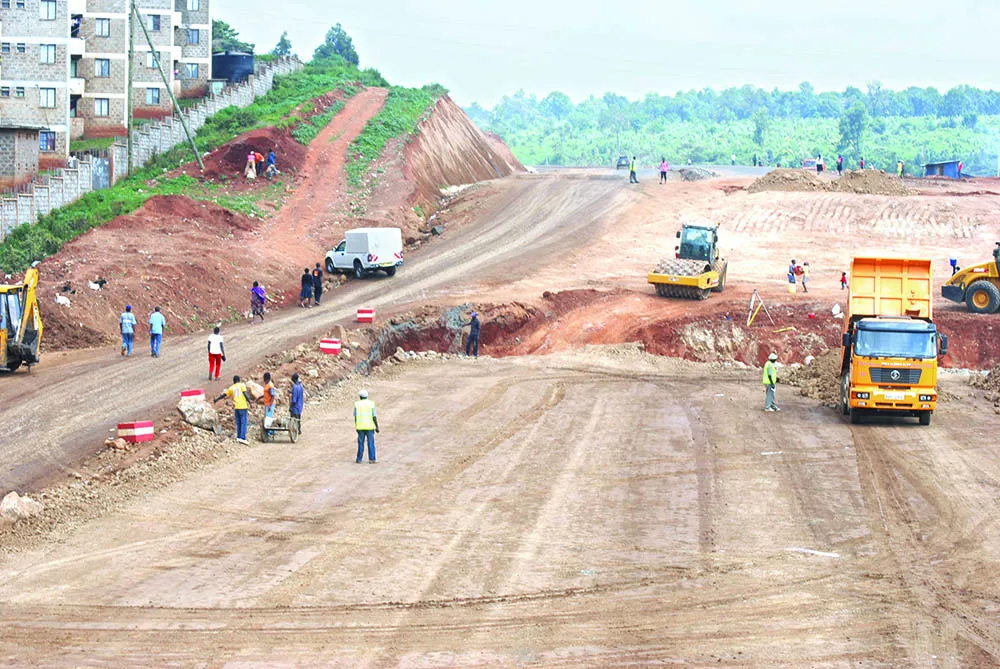Columbia’s National Infrastructure Agency (ANI) will help finance construction of the Toyo tunnel in Antioquia.
The tunnel, nearly 10km-long and costing almost US$760, will be part of a new 39km road between Santa Fe de Antioquia and Canasgordas.
The central government will contribute $216 million towards the project, the regional government of Antioquia will contribute $337 million and the Medellin government will pitch in with $212 million.
January 6, 2015
Read time: 2 mins
Columbia’s National Infrastructure Agency (ANI) will help finance construction of the Toyo tunnel in Antioquia.
The tunnel, nearly 10km-long and costing almost US$760, will be part of a new 39km road between Santa Fe de Antioquia and Canasgordas.
The central government will contribute $216 million towards the project, the regional government of Antioquia will contribute $337 million and the Medellin government will pitch in with $212 million.
The government will award the construction contract later this year.
Columbia has been struggling with road infrastructure investment that has resulted in a backlog of maintenance. Projects such as the Toyo tunnel are part of the government’s Fourth Generation (4G) of the Road Concessions Program.
4G involves 40 projects to build around 8,000km of roads with an investment of $25 billion over seven years. Luis Fernando Andrade Moreno, president of ANI, has said contracts will be let under a Public Private Partnership (PPP) approach.
Moreno, writing in the British-based business publication World Finance in October 2013, said average road travel time will be reduced by up to 30% and transportation costs should drop by 15-20%. Columbia’s economic growth should be boosted from around 4.6% to 5.3% in the long term.
To increase foreign investment for infrastructure, the government is pushing through a PPP Law and created the Financiera de Desarrollo Nacional – a state development bank.
The PPP Law establishes minimum capital requirements and that construction be financed by the PPP sponsor which must demonstrate the financial resources to carry out the work. This could be secured through issuance of private risk capital bonds for placement among institutional investors, private capital funds and pension funds.
Moreno also said laws are also being created to regulate land purchases, streamline conflict resolution and to establish recognised environmental study processes.
The tunnel, nearly 10km-long and costing almost US$760, will be part of a new 39km road between Santa Fe de Antioquia and Canasgordas.
The central government will contribute $216 million towards the project, the regional government of Antioquia will contribute $337 million and the Medellin government will pitch in with $212 million.
The government will award the construction contract later this year.
Columbia has been struggling with road infrastructure investment that has resulted in a backlog of maintenance. Projects such as the Toyo tunnel are part of the government’s Fourth Generation (4G) of the Road Concessions Program.
4G involves 40 projects to build around 8,000km of roads with an investment of $25 billion over seven years. Luis Fernando Andrade Moreno, president of ANI, has said contracts will be let under a Public Private Partnership (PPP) approach.
Moreno, writing in the British-based business publication World Finance in October 2013, said average road travel time will be reduced by up to 30% and transportation costs should drop by 15-20%. Columbia’s economic growth should be boosted from around 4.6% to 5.3% in the long term.
To increase foreign investment for infrastructure, the government is pushing through a PPP Law and created the Financiera de Desarrollo Nacional – a state development bank.
The PPP Law establishes minimum capital requirements and that construction be financed by the PPP sponsor which must demonstrate the financial resources to carry out the work. This could be secured through issuance of private risk capital bonds for placement among institutional investors, private capital funds and pension funds.
Moreno also said laws are also being created to regulate land purchases, streamline conflict resolution and to establish recognised environmental study processes.







